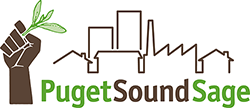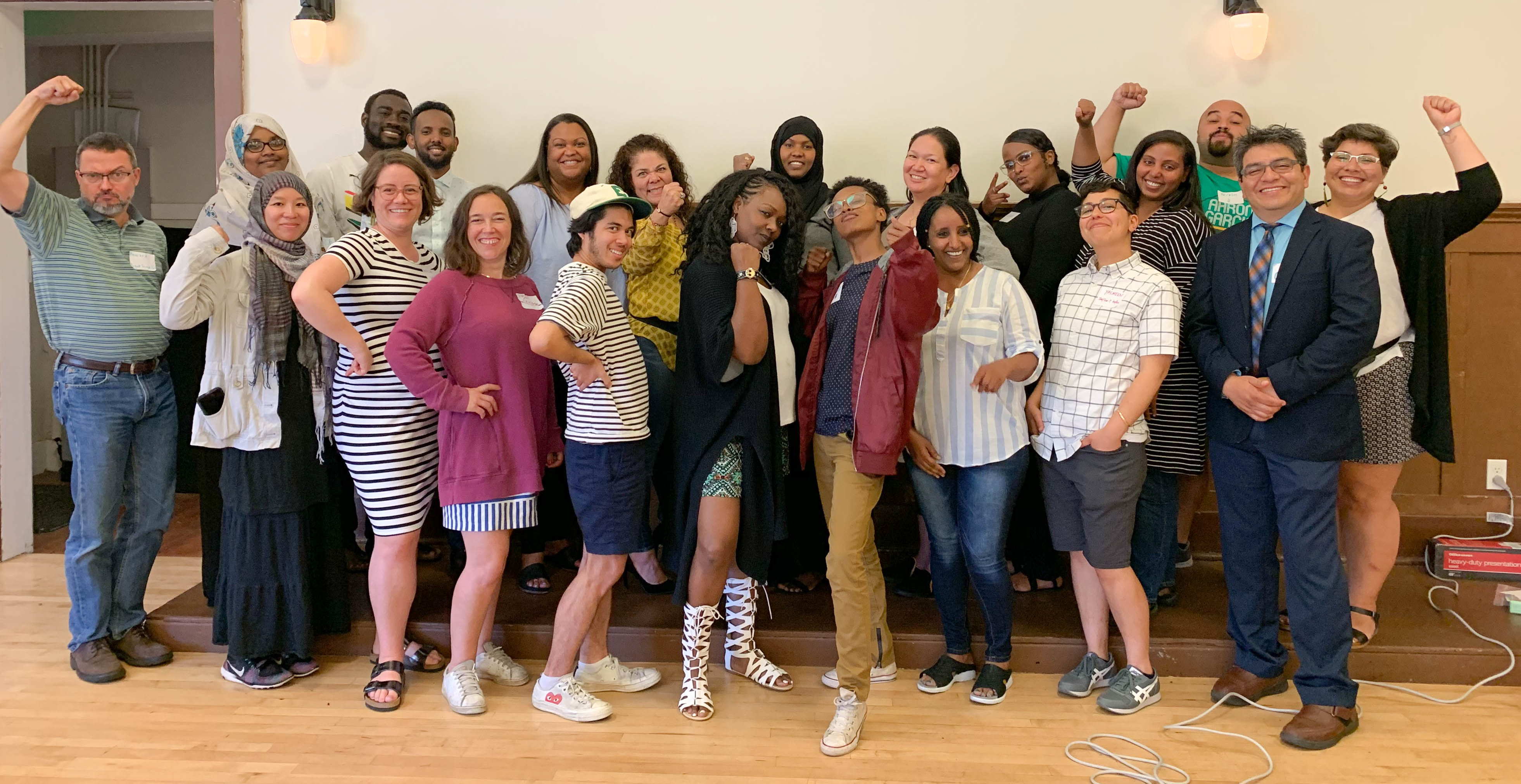Today, we celebrate nineteen Black-, Indigenous-, and people-of-color led community-based organizations.
They have gathered for the last nine months to listen and learn from each other about land stewardship – the practice of putting land and housing into community control. Puget Sound Sage had the privilege to facilitate and help lead this amazing group, the Community Real Estate Stewardship Team (CREST), through an innovative “learning circle” process, funded by King County’s Communities of Opportunity program.
We celebrate the knowledge we gained from each other, including lessons learned from organizations who have been advancing community-led development in Seattle and throughout the U.S.
We celebrate the deep connections people made between our communities and the sharing of our challenges and aspirations.
We celebrate the leadership of CREST organizations who are trying new ways to create and hold community wealth through collectively owned land, housing, and infrastructure.
We celebrate this work, especially in times of crisis. The COVID–19 pandemic threatens to set us back even more in our fights for Indigenous sovereignty, Black liberation, immigrant and refugee rights, LGBTQ rights, disability rights, and anti-displacement. This pandemic reminds us that our current economy has not been supporting the well-being of communities and individuals. Black, Indigenous people and people of color have long known that the current economic practices won’t meet our needs, which is why we’re creating alternative systems and investing in mutual-aid in the interim. Community stewardship of land is one of these alternative models that CREST is working towards.
What is community stewardship of land? Commonly practiced before colonization and western imperialism, community stewardship centers shared value and rights in the holding and use of land. In the context of our current economic system, it calls for taking land out of the speculative market to be put permanently in service of community needs.
This strategy starts by questioning the premise of our current land and housing markets. Private property laws, and the economic systems that reinforce them,A were created to establish and maintain systems of racial and economic subordination of Black and Indigenous people. In our current age, land ownership equals power, and community stewardship of land can be seen as an antidote to the legacy of the historic harms done to communities of color through colonization, chattel slavery, flat out bans on property ownership, and other systemic barriers to land ownership and self-determination. History has shown us that community stewardship of land is the only true solution to the unending displacement of our communities.
Community stewardship of land rests on five principles. We have borrowed these principles from community organizers and movement leaders who have been in the housing justice movement over many decades (thanks to Right to the City Network and Urban Habitat, among many others, for their ideas!).
- Values Driven: guided by values of Inclusion and Racial Justice, Affordability, and Accountability to Community over profit.
- Collective Ownership and Self-Determination: Community, rather than individuals, together owns or controls land.
- Democratic Decision Making and Governance: Residents and the community are the primary decision makers over land and housing and work together cooperatively and democratically.
- Permanent or Long-Term Use: A legally binding contract or agreement specifies the purpose and governance of maintaining the land in perpetuity.
- Building Community Power: Residents are trained and organized to effectively participate in aspects of their housing, broader community development, and policy that governs land and housing.
Over the past nine months, our CREST cohort, comprised of Black-, Indigenous- and people of color-led groups in King and Pierce counties:
- Developed a shared understanding and definition of Community Stewardship of Land and why it’s important
- Deepened their understanding of current models of land use and development and explored alternative models that could lead to increased community control of land and housing
- Further developed their vision for creating community stewardship projects; and
- Increased their skills in community organizing, base building, accountability, successful partnerships, and conflict management.
Sage will be soon hosting the bulk of the curriculum on this website, for everyone to share!
In a world that too often values profit over community, the CREST cohort has been flipping the narrative. The cohort has modeled the collaboration, collective visioning, and community care that we all need, particularly in moments of crisis.
Congratulations to the CREST cohort! We can’t wait to see and support your vision for community stewardship of land.
The CREST Cohort includes leaders from: Africatown, Cham Refugees Community, Colectiva Legal del Pueblo, Debre Mihret Kidus Church, Duwamish River Cleanup Coalition, East African Community Services, Estelita’s Library, Global to Local, Got Green, Hilltop Urban Gardens, Ingersoll Gender Center, Lake City Collective, Multicultural Community Coalition, Na’ah Illahee Fund, Rainier Beach Action Coalition, Seattle Indian Services Coalition, Skyway Solutions CDA, WA State Coalition of African Community Leaders, White Center CDA

